‘No real consequences’: Shocking reason sexual offender was able to attack
Daniel Nicoli was reported for an alleged rape in October 2017. But just a few months later, the unthinkable happened.
EXCLUSIVE
When Lavinia Duga reported to police in October 2017 that she had been raped by Daniel Nicoli, a soldier located at Robertson barracks in Darwin, she hoped to keep other women safe.
“If I don’t do anything, he may do this to another girl,” Ms Duga wrote in her police statement. But “frustratingly”, no charges were laid.
Months later, Ms Duga received a devastating phone call.
Daniel Nicoli had attacked again.
This time, a 21-year-old woman – who Ms Duga had never met or spoken to – had fallen asleep at a house in Darwin.
During the night, Nicoli indecently assaulted the woman as she protested, telling him, “Please stop, I don’t want to do this”, to which Nicoli replied, “I know I’m very full on but I can’t help myself.”
Earlier in the evening, Nicoli had accused another man at the home of “cock blocking” him, after the second man refused to move the sleeping victim who had consumed alcohol and painkillers to an empty room.
Despite his reservations, the second man eventually woke the victim, and asked her to move from the main bedroom where she was sleeping next to another woman, to the empty spare bedroom where Nicoli, then aged 25, proceeded to indecently assault her.
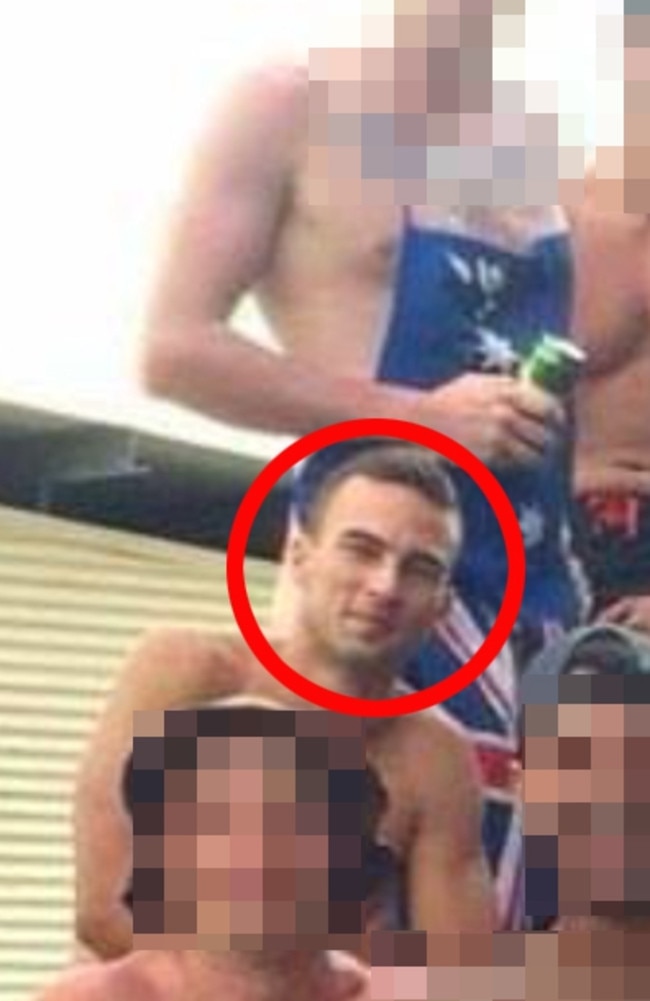
The second attack occurred nine months after the attack on Ms Duga, and eight months after Ms Duga had reported Nicoli to police.
Armed now with two reports of rape, authorities finally swung into action and in 2018, Nicoli was charged with two counts of sexual intercourse without consent in connection with the two women.
To this day, neither woman has met or learnt of the other’s identity.
Now, as part of news.com.au’s exclusive #TakeTheStand campaign, we are lawfully able to unmask Nicoli as Ms Duga’s attacker after a legal restriction preventing us from naming him and linking the cases was removed.
Ms Duga is speaking out to highlight her frustrations with the justice system and to seek reform.
She is haunted by the knowledge that had the prosecution acted sooner on the information she first provided in 2017, the second woman’s assault in July 2018 may have been avoided.
“I believe the second attack was preventable,” said Ms Duga in an exclusive interview with Nina Funnell, the creator of Take the Stand.
“Watching that unfold was incredibly difficult. I think about the other victim every single day. “If he had been charged sooner, it might have spared others from harm.”
News.com.au can also now reveal that despite sexually attacking two women within months of each other, Nicoli has never spent a night behind bars.
In a Supreme Court tendency evidence hearing in April 2019, Justice Trevor Riley ordered that the women’s cases be split and heard across two separate trials, meaning neither potential jury would be allowed to learn that Nicoli was facing more than one allegation.
Against Ms Duga’s wishes, the prosecution then cut Nicoli a deal: if he pleaded guilty to a single count of indecent assault against the second woman, they would drop all other charges, thereby saving them – and him – the cost of two trials.
Nicoli took the deal on the table.
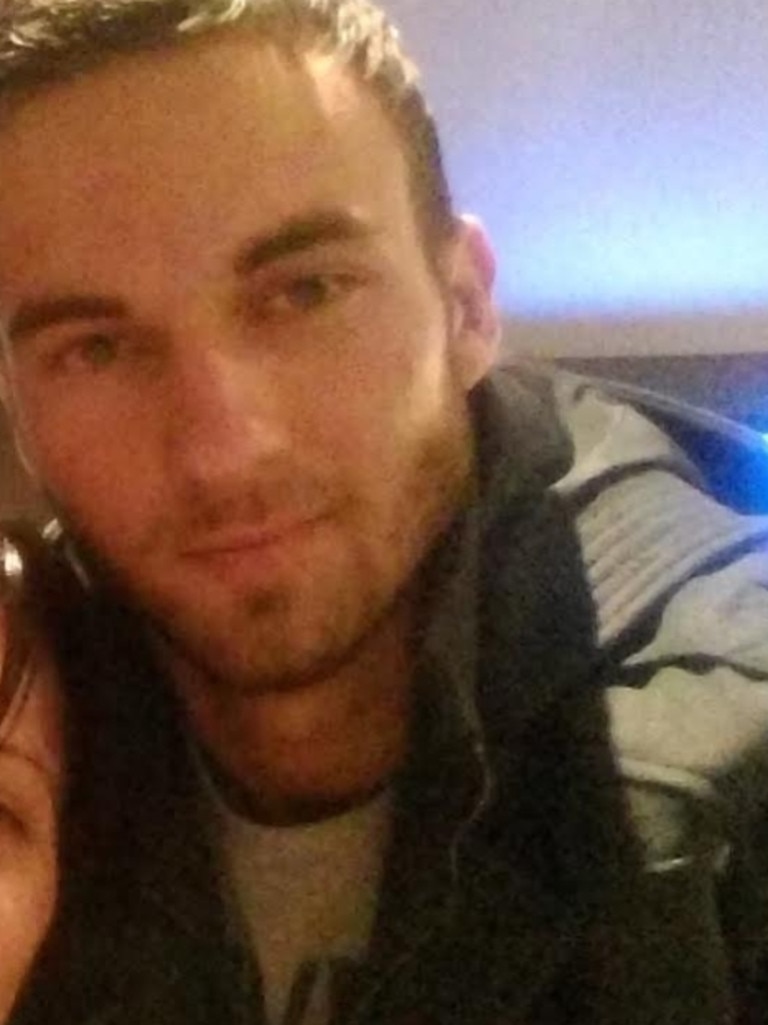
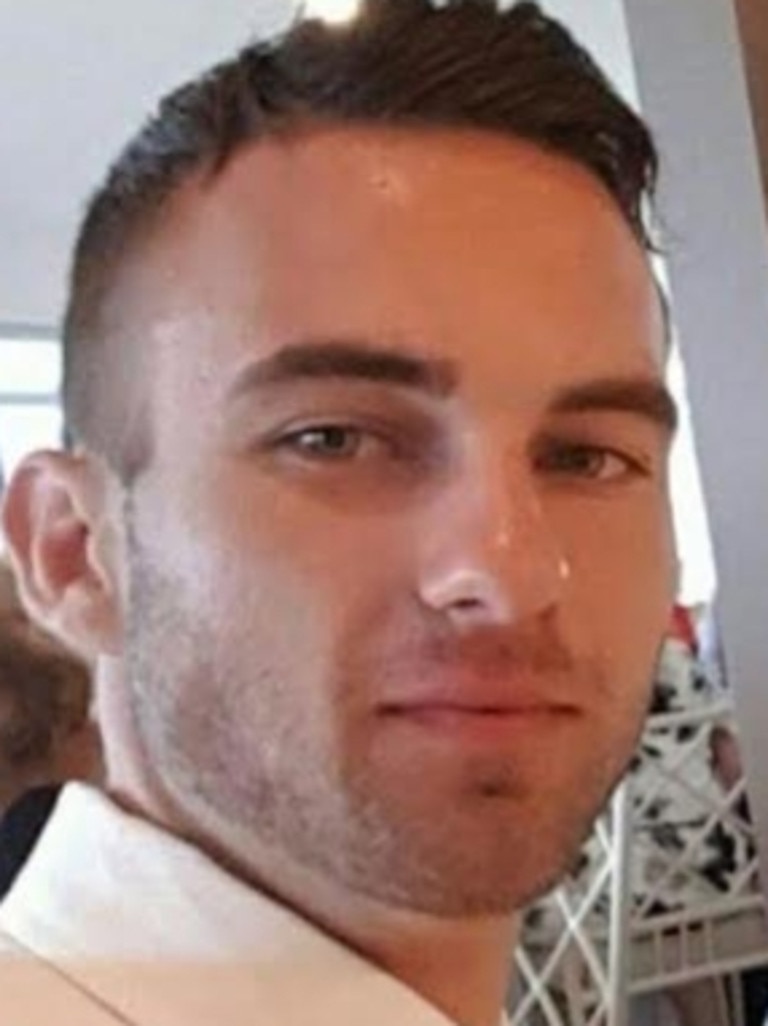
“I remember feeling traumatised,” Ms Duga said.
“I was crying, I was shocked. I remember thinking it sends a troubling message that actions have no real consequences.”
Nicoli was sentenced to just 12 months jail, suspended immediately – a punishment Chief Justice Michael Grant said would send a message to him and “other young men”.
Not only did he dodge jail, he was also described by the sentencing judge as an “exceptional soldier”.
Ms Duga was outraged. She decided to take matters into her own hands and sue Daniel Nicoli directly for raping her.
In 2023, as the civil case was about to get underway, Nicoli abruptly agreed to settle the civil suit for a confidential sum.
“It was never about the money. Like any other victim I wanted justice. I wanted to be able to name him and I believe to some extent I got justice because I can now name him and say he is a sex offender,” she said.
Already, Ms Duga has helped change a law in the Northern Territory. In 2020, she became the first sexual offence survivor in the jurisdiction to speak out as a complainant under her real name as part of the #LetHerSpeak campaign created by Ms Funnell.
That campaign eventually led to sexual offence victim gag law reforms across the country, and Grace Tame – who was the first of 22 case studies to feature and receive free legal help provided by Ms Funnell’s campaign – later went on to win Australian of the Year.
‘The worst day of my life’
Lavinia Duga was just 26 years old when she flew to Darwin in October 2017 for a four-day business trip.
Daniel Nicoli, a family friend who she knew through church, had offered to play tour guide.
“I knew his family, including his brothers, cousins and parents,” Ms Duga told news.com.au.
“He worked as a soldier at Robertson Barracks and he told me that he was going to show me around Darwin. He said that with him, I’m ‘in good hands’, so I trusted this person.”
After a couple of days of sightseeing, Nicoli suggested he take Ms Duga to a hidden swimming spot where there were no crocodiles.
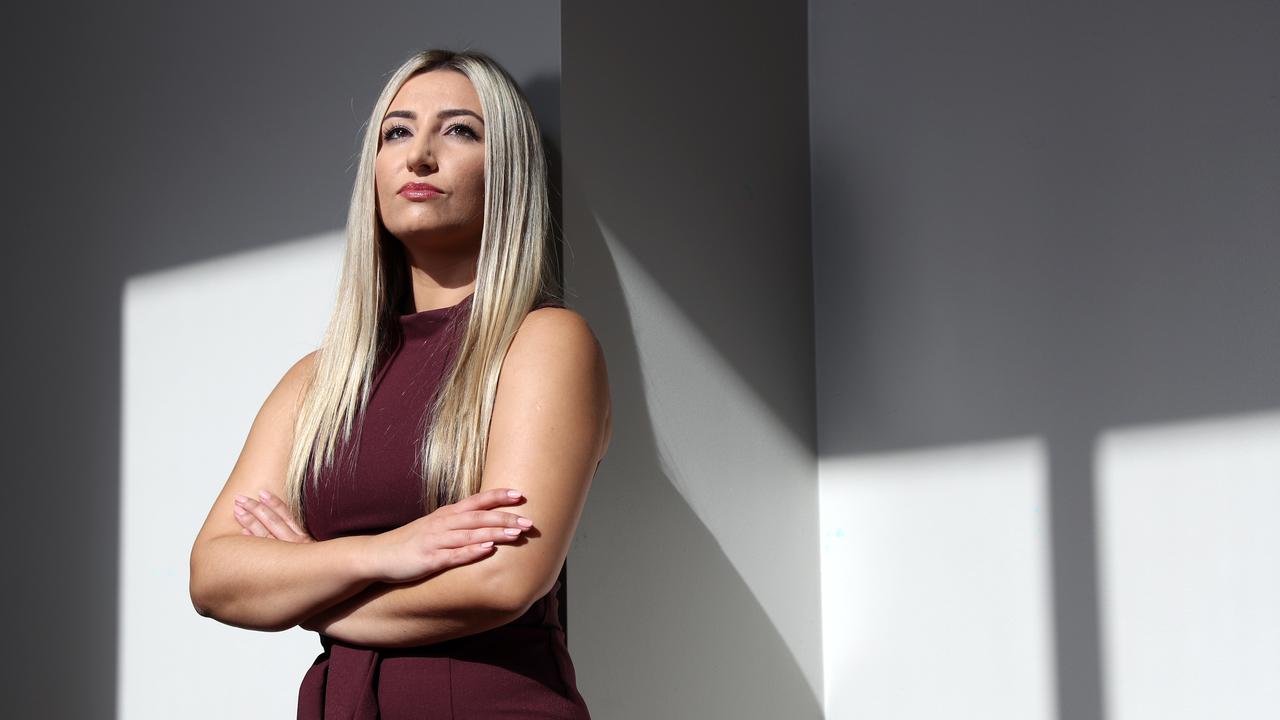
“He said we just had to stop off at the army barracks to pick up some friends.”
But once the pair arrived at the barracks – almost an hour away from Darwin – the plan unexpectedly changed.
“That’s when I knew something was wrong,” she said.
“I was in the middle of nowhere. There weren’t any women around. There was no phone coverage. It was a very isolated place.”
Inside, the soldier began kissing her.
“I was happy to kiss him at first. Then he pushed me onto the bed. I was laying on my back and he was on top of me,” she said.
“I had already made it clear that I didn’t want to have sex. He’s from the same faith and he knew my views.
“I kept telling him no.’’
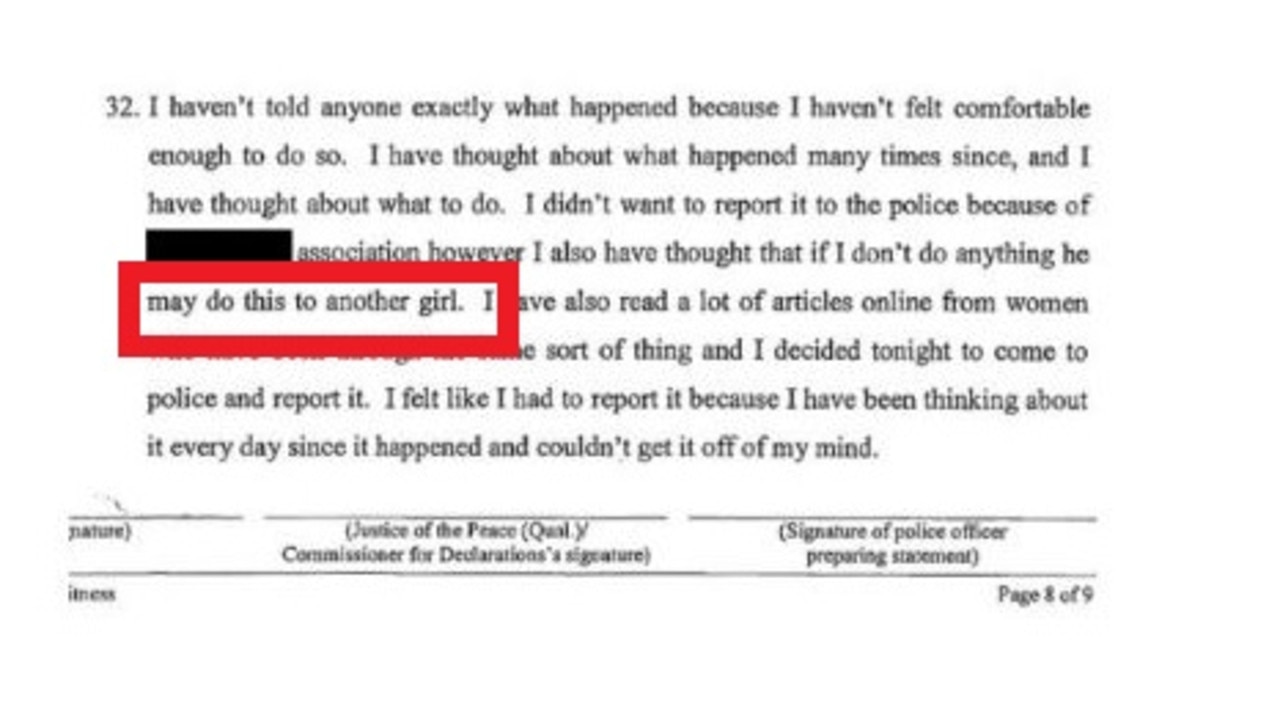
Ms Duga’s police statement details how the assault unfolded.
“I kept saying ‘No’. Daniel wasn’t saying anything at all. He was looking at me straight in the eyes as I was saying ‘No’ but he just stared at me without saying anything,” she said.
“He was like a completely different person.
“It was causing me pain inside and I was yelling at him to stop. I yelled that it was hurting me and he finally let me go.
“Afterwards I went to the bathroom and just looked at myself in the mirror. I couldn’t stop shaking.”
The following day, Ms Duga flew home to Queensland. For weeks she couldn’t sleep.
“I was worried that people wouldn’t believe me. I was worried about the church and our family friendship,” she said.
By November 2017, she decided she couldn’t live with herself if she didn’t report the matter to police.
‘He could do this to another girl’
When Ms Duga agreed to call Nicoli, police were listening in. Over two phone conversations recorded by police, he admitted to sexually penetrating Ms Duga. He admitted that he knew she repeatedly said “no” and that he did not stop.
But he claimed to have “no idea” that she wasn’t consenting, instead suggesting that he interpreted her repeated “nos” as more of a “cheeky no” and that maybe Ms Duga just “bruises easy”.
No charges were laid.
“Getting on the phone and speaking to him required every ounce of courage … I found it really difficult,” said Ms Duga.
“So the outcome was shocking. It left me traumatised. I just couldn’t believe it.”
Ms Duga also contacted NT prosecutors who were “dismissive” and later “victim blamed” her.
“The prosecutor said it wasn’t my evidence that was the problem, it was my circumstances … I was told I didn’t get away fast enough from the scene … I was told that a jury wouldn’t believe me because I didn’t behave like other women (would have) following an assault,” she said.
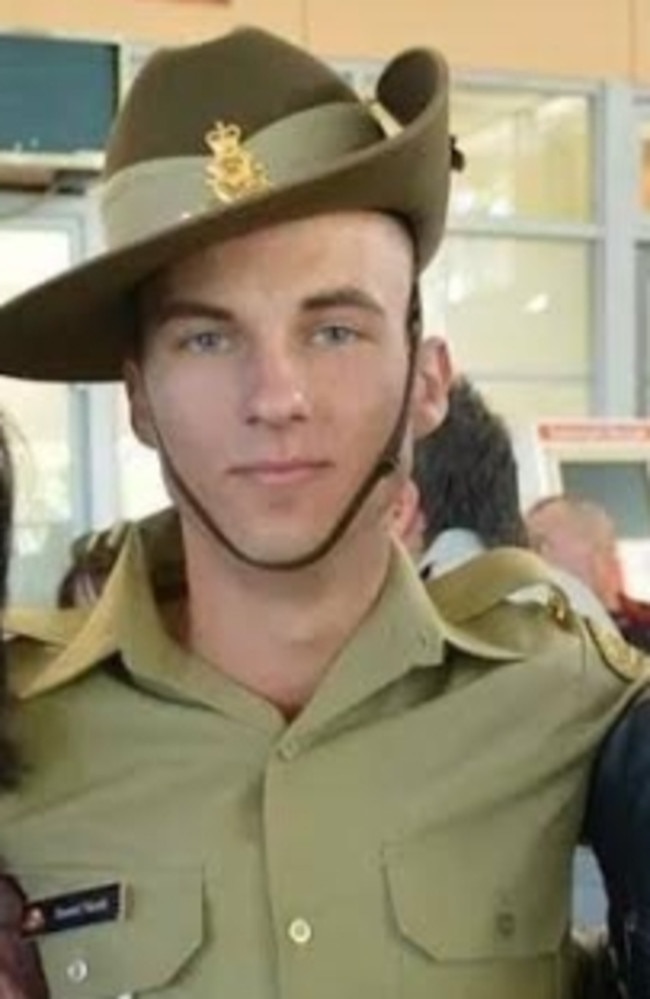
“(At the barracks) I had no mobile phone coverage and there were no women around, so of course I couldn’t just leave … I sat there pretending I was OK, trying to sit still and hide the fact I couldn’t stop shaking.”
Ms Duga was dependent on Nicoli to drive her back to town, a fact she says was held against her.
“We need to educate people more, to have more sympathy and care, because I’ve even had friends say really mean things,” she said.
“For example, saying ‘don't report him to police’ or ‘don’t take this further to the media, it will affect his job and his life’, and I’m thinking, ‘but it’s affected my life, and I’ve lost my job, I’ve been financially hit, and had difficulty working since 2020’. It doesn’t make sense they have so much sympathy for him.
“Too often society seems more concerned with the rights of the criminal rather than the pain and suffering of victims.
“We need to stand up for those who have been harmed. And if you don’t want to be exposed, then don’t commit the crime.”
A second woman comes forward
When Ms Duga received a phone call in August 2018 to tell her Nicoli had been charged with raping a second woman, the call did not come from Darwin police or prosecution, but from a third party who knew him.
Ms Duga then contacted the prosecution to verify if the information was accurate.
“No one was apologetic or compassionate … They were more focused on ‘who told you?’ and how I found out,” she said.
“I was so upset. I (believed) he would reoffend and I was waiting … it was just so hard to watch when it unfolded.”
Ms Duga also said that after the assault she was mocked and ridiculed by Nicoli, who suggested Christian women are sexually uptight. For the religious woman, this was a further insult and humiliation.
“Our priority should always be protecting the innocent and ensuring those who commit such evil crimes face the consequences of their actions,” she said.
‘Critical’ detail in Nicoli cases
Both cases involved women who were travelling from out of town at the time of the assault. Both were manipulated to a more isolated location where they were more vulnerable, and where Nicoli had power over them. And in both cases, the women had vocally protested, but the soldier had refused to listen.
“Here we have a case which involves two women who have never met or spoken, and had no knowledge of each other, both coming forward within months of each other with very similar experiences of sexual violence by the same perpetrator,” said Rape and Sexual Assault Research and Advocacy chief executive Dr Rachael Burgin.
“That’s critical,” Dr Burgin said.
But a judge disagreed, ruling in 2019 that there was nothing which, in his opinion, “serve(d) to link the two together”, and therefore, the two cases would be tried separately.
Severing the two matters was a shocking blow, as the jury would never learn the full list of allegations.
And after Nicoli accepted the prosecution’s plea deal, the charges relating to Ms Duga’s matter were dropped and the trial didn’t go ahead.
Dr Burgin said that, while frustrating, the judge’s decision may have been “legally sound” – which is a problem all of its own.
“In one sense, the system isn’t ‘broken’ at all – it is working exactly as it was intended to. And that’s the problem: the law is out of touch with reality. It’s out of touch with community expectations. It’s out of touch with women’s lived experience of sexual violence. It lags behind academic evidence and research into what we know about sexual offending and those who perpetrate sexual violence,” she said.
“I did want my day in court, and I was prepared to go to court but I mainly wanted the right to name him and share my story. That was the most important thing,” said Ms Duga.
In yet another cruel twist, Ms Duga then learnt that even though the now-convicted sex offender would not see the inside of a jail cell for the crime against the second woman, Ms Duga potentially could for naming herself.
Under Northern Territory legislation which existed in 2019, it was a crime for media to publish the identities of sexual offence complainants, even in cases where they consented to being named.
Anyone found guilty of breaking the law could have faced up to six months in jail, including Ms Duga herself.
“I felt like I was being treated like I was a criminal,” she said.
“Women should be allowed to speak publicly if they want to.”
In response, in 2019, Ms Duga joined Ms Funnell’s #LetHerSpeak campaign to amend the NT’s archaic sexual offence victim gag laws. When the law changed in 2020, she became the first woman to speak out as a sexual assault complainant (Nicoli was not identified at that time as the civil case had not settled).
“For me it is important to be named because it gives you strength,” said Ms Duga, who is now doing work with Queensland Police.
“We should not accept injustice. I want to focus on helping women and on the criminal justice system because there’s a lot of work that needs to be done.”
Now, Ms Duga wants to see more done to make the criminal justice system trauma informed and accessible to survivors.
More Coverage
“We must demand that leaders and the system prioritise the safety and healing of victims over misguided compassion for those who have caused the harm.”
Nina Funnell is the creator of both the #LetHerSpeak/LetUsSpeak campaign and the #TakeTheStand campaign. To support the campaign visit here
Contact: ninafunnell@gmail.com
Read related topics:Take The Stand






